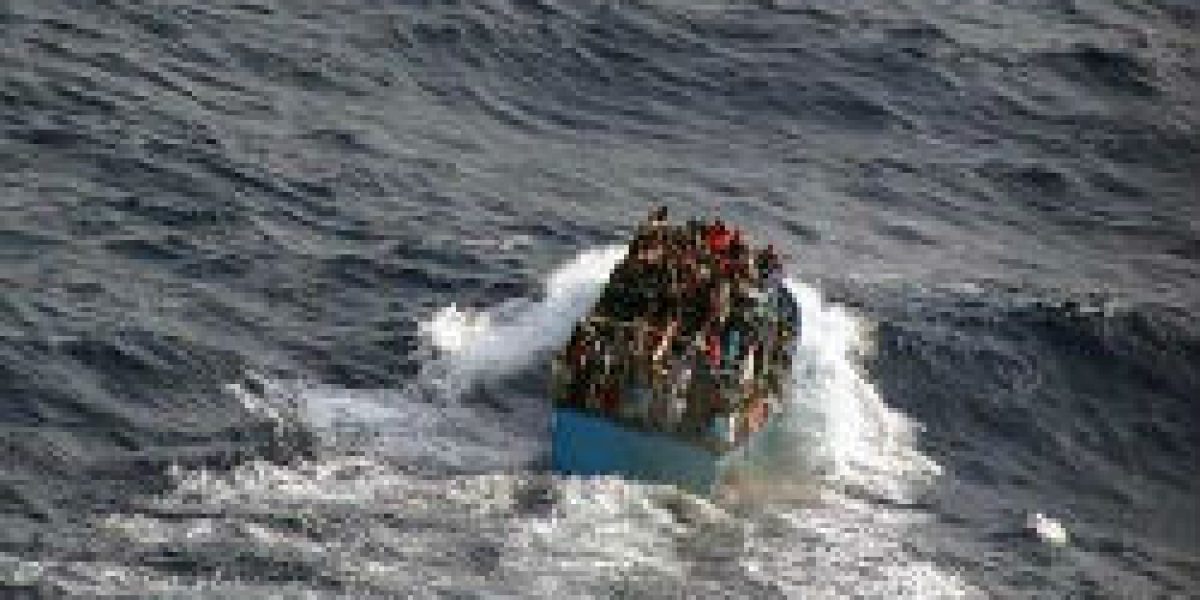
Brussels, 5 December 2013 – Just two months ago, hundreds of people died off the coasts of Lampedusa and Malta, when two boats sank during their attempts to reach safety and protection in Europe. The scale of these tragedies provoked a palpable sense of shock and horror across Europe which compelled the European Commission to convene a “Taskforce Mediterranean” with a mandate to develop a range of measures to prevent further deaths of refugees and migrants at EU borders.
Yesterday, the European Commission announced the results of the Taskforce, which regretfully maintain a focus on reinforcing border surveillance and cooperation with third countries in order to prevent irregular migration, and provide few specific actions for migrant protection that will prevent further deaths at the borders.
“We had hoped for the Taskforce to produce a list of specific and new measures that would actually prevent the further loss of life at the EU borders”, says Stefan Kessler, JRS Europe’s Senior Policy Officer. “We instead have a list of policies that have already been in place for years that will do little to improve protection at our borders. It is a missed opportunity”.
It continues to be urgent for the European Commission to develop specific measures for legal and safe channels of entry to the EU for migrants. Violence, war and human rights violations persist and force people to flee their countries of origin and seek refuge in other parts of the world. With the escape routes becoming increasingly dangerous, the next tragedy is inevitable if there is no radical change in European policies. Despite Europe’s moral and international legal obligations to provide access to protection for refugees, it is still almost impossible to get to Europe to apply for asylum through safe and legal methods.
JRS Europe agrees with the call by the Taskforce for Member States not to criminalise shipmasters if they rescue migrants in distress, and also with the Taskforce’s support of improving intra EU-relocation for migrants to help member states whose national asylum systems cannot cope with new influxes of asylum seekers. The announcement that a resettlement conference will take place in 2014, in order to find ways to resettle vulnerable refugees, is much needed.
JRS Europe recognises that now further action is necessary, and calls especially on the European Parliament to use its powers as co-legislator and representative of European citizens to put pressure on Member States to implement necessary changes. These changes include:
- The development of a mechanism to determine who is responsible for rescuing boats in distress. The indecision between the Maltese and Italian authorities over who should have conducted a rescue of the migrant boat near Lampedusa on 3rd October was a major reason for why 350 people lost their lives. Developing such a mechanism would really help to reduce deaths at Europe’s borders.
- The EU must ensure that migrants are not pushed back or pulled back at the borders, and that they have access to safety and proper asylum procedures. Border surveillance measures should be used to save lives and bring people to safety, and not to keep people who are seeking protection away.
- The EU and its member states must urgently offer many more places for resettlement, especially of refugees from Syria. This single measure would reduce the need for people to take dangerous routes to Europe.
- EU readmission agreements with third countries must contain strong and effective human rights safeguards. Such agreements must not be used to simply keep people from reaching safety in Europe.
“The EU needs to substantially improve its policies towards forced migrants in order to ensure that it lives up to its own values, and meets its responsibilities under its own law and under international human rights law”, argues Mr Kessler.
“If Member States continue to block any and all progress, the European Parliament must put more public pressure on them”, he concludes.
The EU needs to substantially improve its policies towards forced migrants in order to ensure that it lives up to its own values, and meets its responsibilities under its own law and under international human rights law.

